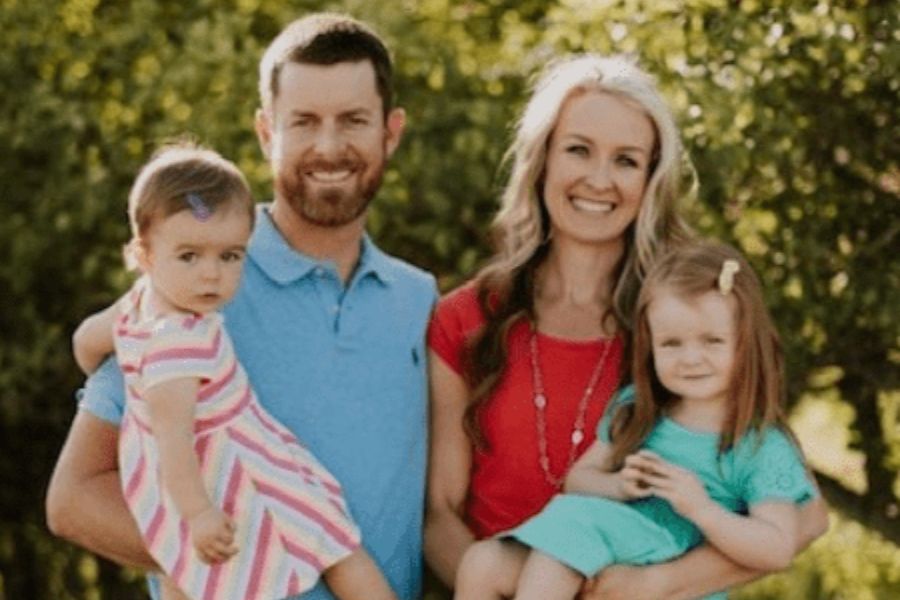Welcome to Celiac Self-Care! In this series, we’re exploring the ways in which celiac disease affects quality of life and sharing the self-care strategies that help our Reach Beyond Celiac Ambassadors cope.
In this post, ambassador Christina Heiser chats with ambassador Erin Ford. They discuss Erin’s experience raising a child with celiac disease, what being a licensed counselor has taught her about self-care, and the advice she has for other parents navigating life with a child with celiac disease.

By Christina Heiser
Regan was our first child. She was very anxious—really nervous all the time and not very go-with-the-flow. We thought maybe we were helicopter parents.
Then all of a sudden, when she was about two years old, she started throwing up out of nowhere. So we took her to the doctor to get it checked out. He came back and said, “She has celiac disease.” I said, “Hold on, you’re jumping the gun.” We went to a specialist, who did an endoscopy, and, sure enough, she absolutely had celiac disease.
I’m a problem-solver, so at first I was like, “OK, we got this. Let’s figure this out, she’ll be fine.” I stayed really superficial with it. But then we discovered what it was going to be like to live gluten-free.
With a tiny kid, gluten just gets everywhere. So my husband and I decided to make our home entirely gluten-free. It was challenging, for sure. The phases of grief set in—we realized how much we were going to have to change and adapt our way of living and what this might mean for her long-term.
Also, Regan, who’s four years old now, goes to daycare twice a week and hangs out with my in-laws three day a week, so a big piece was educating myself and then educating our system about it.
It was actually easier, I think, when she was younger, because parents are typically the ones monitoring all that. But as she’s gotten bigger, it’s definitely become tougher to keep the system safe.
It’s a spectrum. Sometimes I go into hyper-protective Mama Bear mode. I tend to be more on the aggressive side, and that’s obviously not effective. At the other end of the pendulum is the grief I feel around what Regan might have to go through and what our life might look like.
As a professional counselor, I eat, sleep, and breathe emotions—and that has just become me as a person. I’m emotionally tuned in, especially with my kids. I think about all the things Regan might have to go through with this, the feelings she has, and now that she’s four, she’s starting to connect it.
The middle ground is staying solution-focused and problem solving. My big thing has been birthdays. I go 10,000% overboard because I want this to be the one time that this kid can have everything.
I have to remind myself, “My job isn’t to protect you from the hard things in life, my job is to teach you how to be resilient, how to have compassion.”
One of the things that has helped me the most—and that I think will help her—is that we’re going to use this experience to become more compassionate. It’s a balance of never minimizing this experience, because it’s hard, but also, we’re going to take this and use it for something good.
All of my self-care has always been around fitness and nutrition. I love CrossFit, I love working out. But my self-care went out the window when my daughter was diagnosed with celiac disease, and that was really hard.
All of these things I used to do to keep myself together—suddenly, my body couldn’t push that hard. I wasn’t feeling good. I was fatigued and my hair was falling out. It was a crappy situation because taking care of my health was always something I did to manage stress.
Whether it’s my life or my clients’ lives, it’s really about naming what you’re feeling, talking about it, and getting support through it. I definitely went and saw counselors and talked to my support network about it.
Also, I was listening to Brené Brown’s new book recently, and she talked about how many things we do in our lives to avoid pain. So I think it’s all the ways I’m responding to pain, doing things I enjoy, allowing outlets for my feelings, taking care of myself to the best of my abilities.
I would say number one is to get support and own your feelings. Own all of the feelings because it’s hard and it’s OK to feel pissed. It’s OK to feel sad and mad. It’s OK to think, “Why me?” You have to feel these feelings in order for them to go away or at least not jam up.
I’m in one online group for celiac parents, and it’s been helpful to connect virtually with lots of different people and have lots of different input on things you’re thinking about.
Opt-in to stay up-to-date on the latest news.
Yes, I want to advance research No, I'd prefer not to